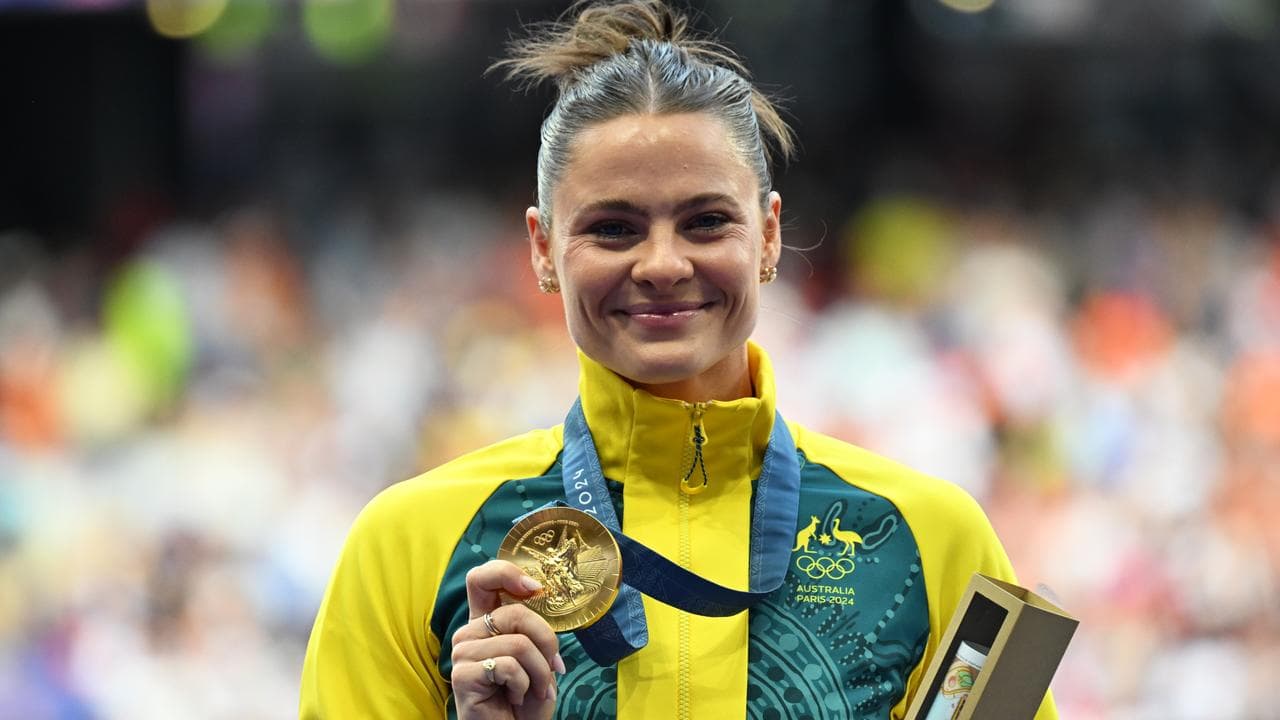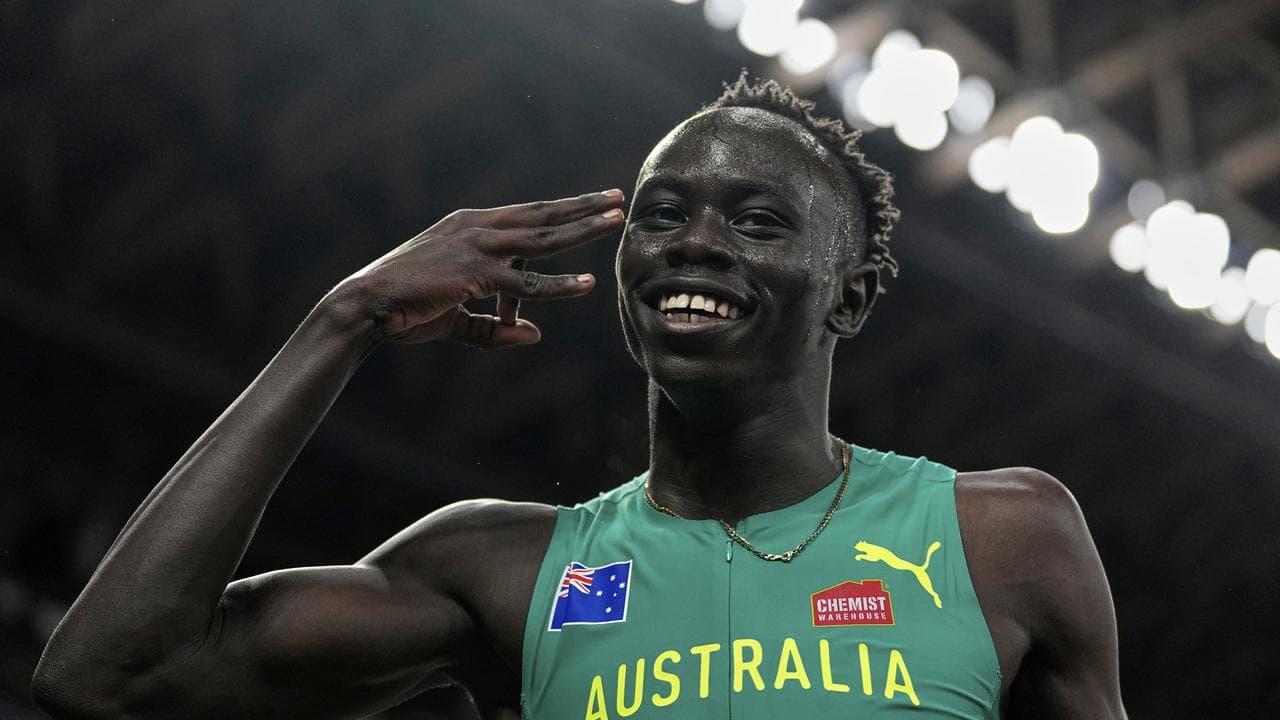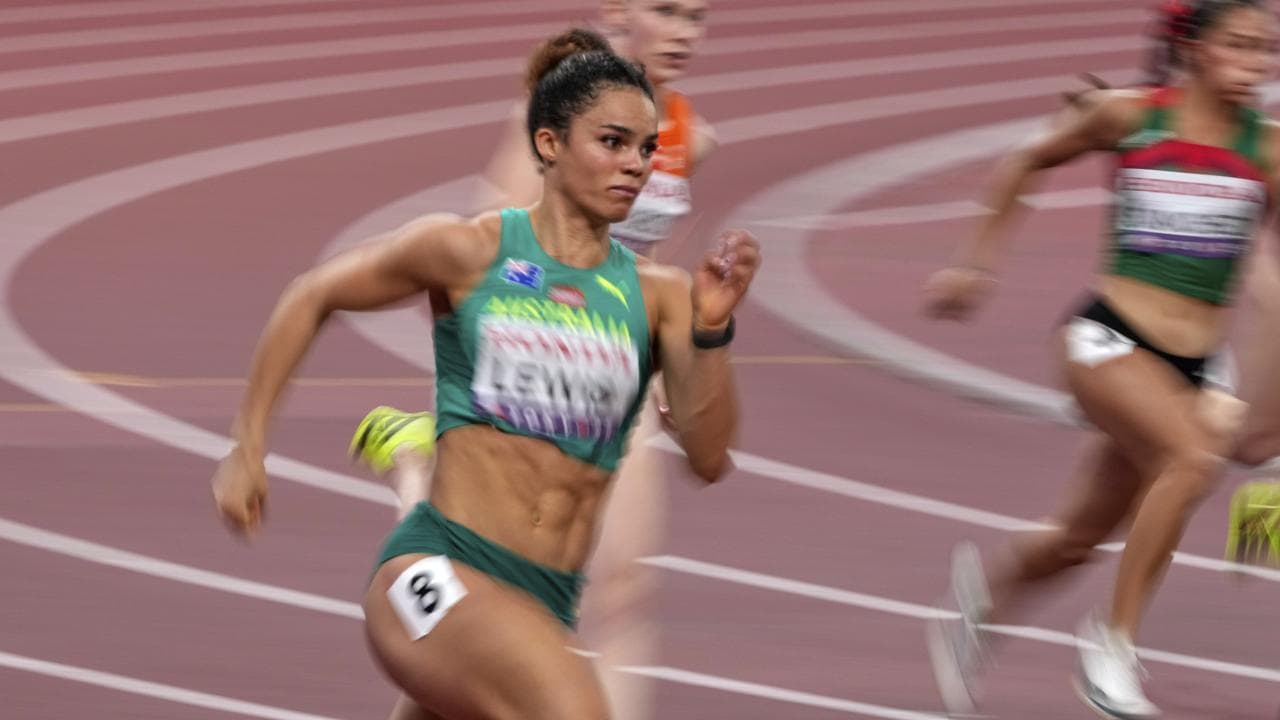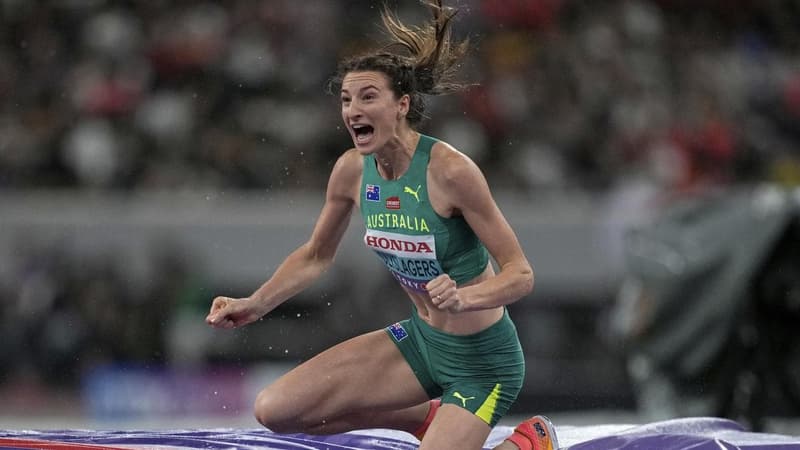Four medals from familiar faces and some hugely encouraging performances from generation next headed by teen sensation Gout Gout were the highlights for Australia at the Tokyo world championships.
While the final medal haul of four – headed by Nicola Olyslagers’ clutch high jump gold on the final day – didn’t match the seven medals won at the Paris Olympics and six at the 2023 world titles, there were extenuating circumstances.
Injury meant Olympic gold medallist Nina Kennedy didn’t get the chance to defend her pole vault world title in a final in Tokyo which didn’t reach any great heights.

Nina Kennedy’s absence was keenly felt in Tokyo. (Dean Lewins/AAP PHOTOS)
Walker Jemima Montag – a serial medal winner at the majors – was another notable absentee after undergoing hamstring surgery.
In their absence, Olyslagers led the way with high jump gold and was well supported with bronze from Jessica Hull in the 1500m, pole vaulter Kurtis Marschall and rejuvenated javelin thrower and fulltime doctor Mackenzie Little.
“On the back of last year’s performances, it might on face value seem like a drop away,” said Australian Athletics (AA) high performance boss Andrew Faichney.
“We’ve had three medals (one to Kennedy and two to Montag at the Paris Olympics) not here as well.
“So all in all, I think it’s been a really successful championships.
“We’ve had a number of our juniors that have been able to come through.
“For year one in an Olympic cycle it’s looking very good.”
Any discussion of junior talent inevitably leads straight to Gout.
The schoolboy sensation didn’t match his aim of becoming the first Australian to dip under 20 seconds, which he would have needed to have done to book a spot in the 200m final.
But he got into the semi-finals, looked right at home on the global stage and would have learnt any number of valuable lessons going up against the big dogs of world sprinting.

Gout Gout was the centre of global attention in Tokyo. (AP PHOTO)
And as Gout himself notes, at 17 he’s got all the time in the world.
His female equivalent Torrie Lewis had a breakout championships, beating her own Australian 100m record, lowering her 200m PB and advancing to the semis in both sprints.
“Everyone had so much expectation around Gout but his performance was just brilliant really,” said Faichney.
“The fact that he was able to perform so well in his heat, get through into the semi and finish strongly in that semi was fantastic as a 17-year-old athlete.
“Torrie, two great performances from her as well. That was really strong.”

Torrie Lewis made both sprint semis in a breakout campaign. (AP PHOTO)
Gout and Lewis were two of eight medallists from last year’s world juniors to make the step up to the senior team in Tokyo.
The most unexpected result of the meet was Ky Robinson’s flying fourth-placed finish in the men’s 5000m, a year after he was unable to even get a berth on the team for the Paris Olympics.
Craig Mottram’s longstanding national record of 12 minutes 55.76 seconds is high on Robinson’s hit list for 2026.
Qualifying all five relay teams for the first time was another tick, even though the men’s 4x100m was the only one which got through to the final.
The men’s 4x400m was the hard luck story, being denied an Australian record and a finals berth by a minor baton change infraction that led to disqualification.
Faichney was insistent that AA was vindicated in sending a full team of 86 athletes to Tokyo.
The squad is likely to be even bigger for next year’s Commonwealth Games in Glasgow.
License this article


AloJapan.com